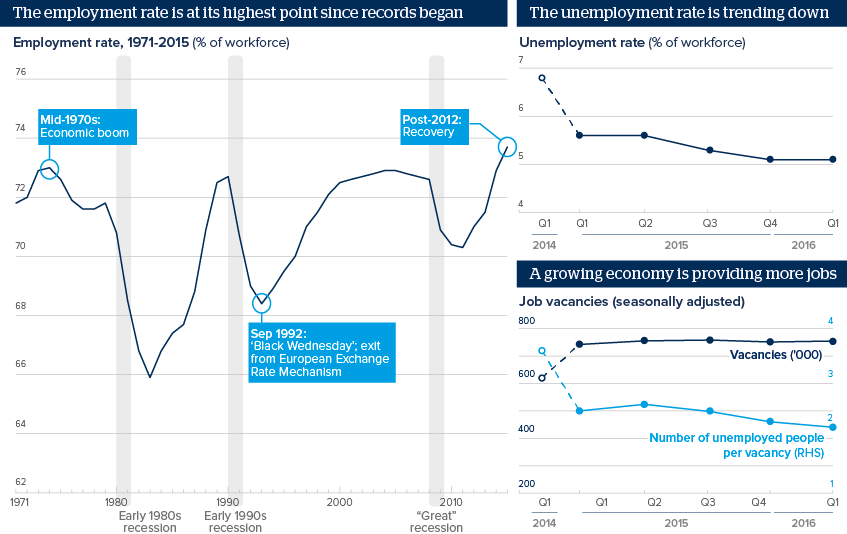Dynamic UK economy will continue to need immigrants
A tightening UK labour market has jobs for UK-born as well as foreigners

Source: ONS, Eurostat
Outlook
Those advocating a UK departure from the EU ('Brexit') point to high levels of immigration. They say this takes jobs from Britons and depresses wages. However, labour market data suggest instead that the UK economy's demand for labour cannot be met locally and is pushing up wages. A post-Brexit government would have to accept slower growth if it barred foreign workers.
More people are working than ever before -- the 74.2% employment rate in January-March 2016 was the highest since 1971. The number of non-UK nationals finding work (229,000 in the year to January-March 2016) exceeded that of UK nationals (185,000), but with 745,000 job vacancies in February-March, 13,000 more than a year earlier, there is work for all.
Impacts
- As most immigrants arrive with definite job offers, an Australian-style points system would make little difference to migrant inflows.
- Annual three-month average nominal weekly wages were 2.0% higher in March, 8.1% in construction; public-sector growth is slowest (0.6%).
- EU citizens become UK residents to work: their economic activity rate in 2015 was 85.9%, compared with a UK average of 80.9%.
- Job vacancies are on an upward trend and unemployment downwards.
See also
- 'Brexit' could hinder long-term UK growth - Apr 11, 2016
- More graphic analysis